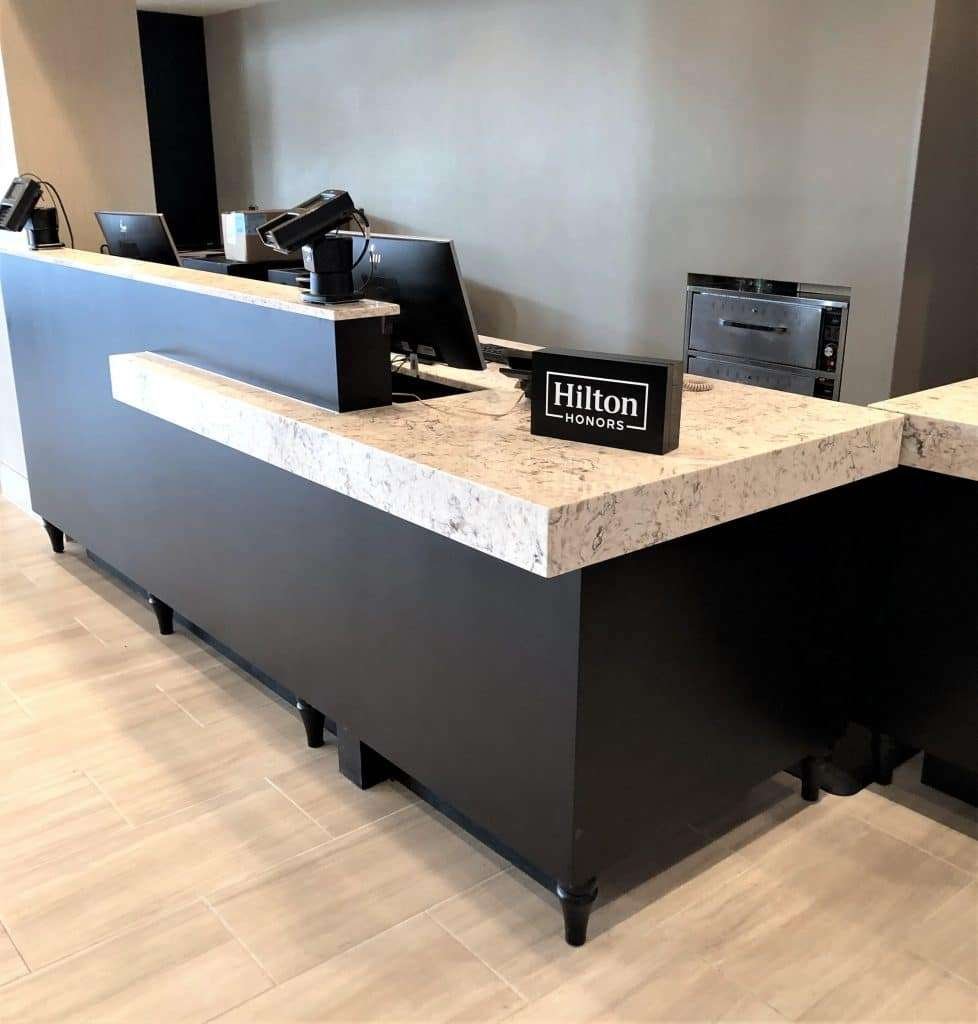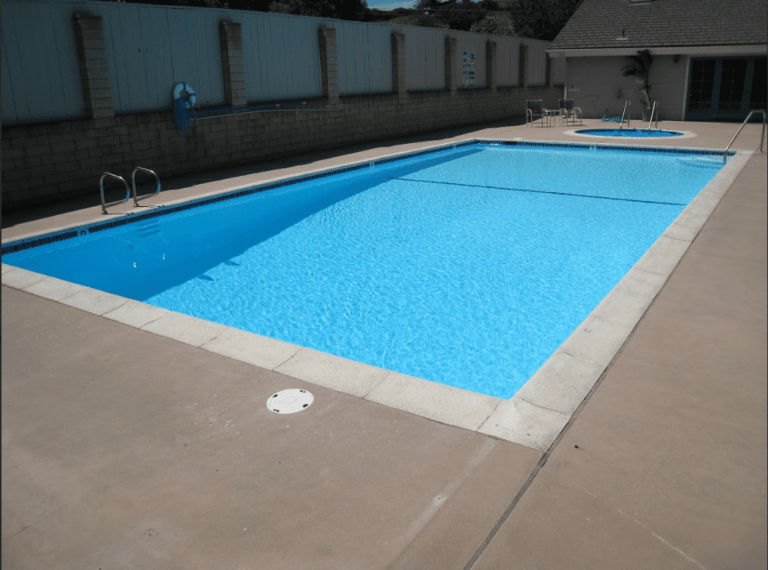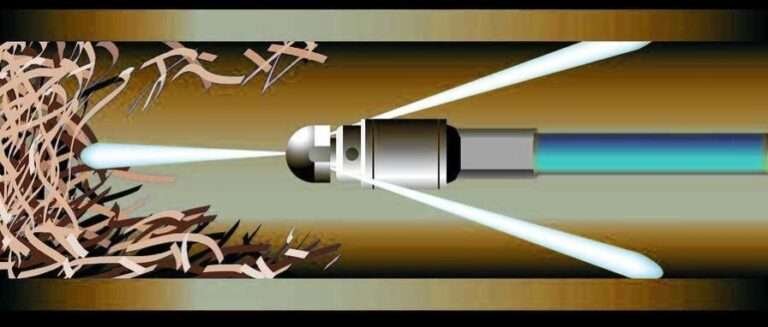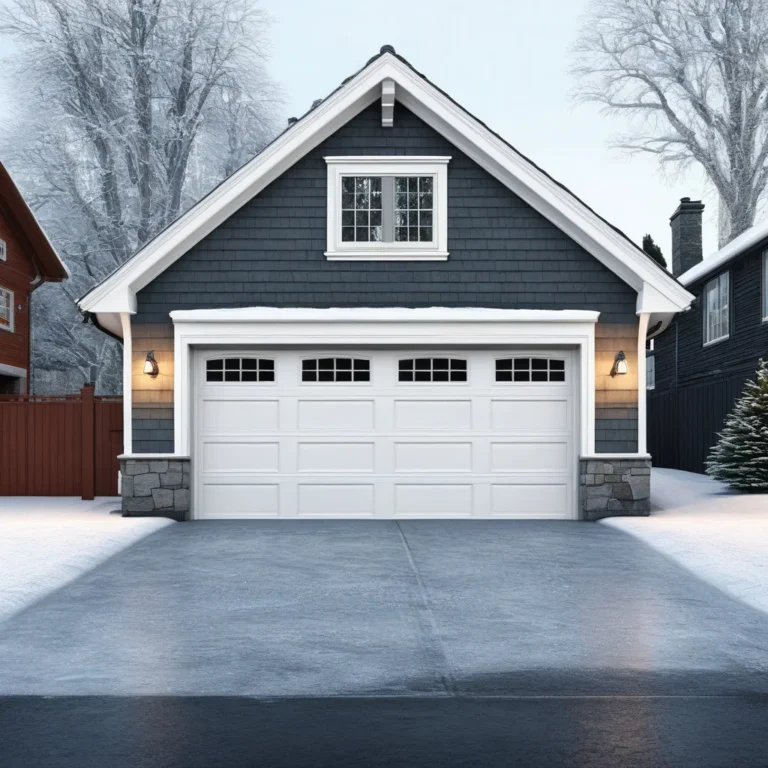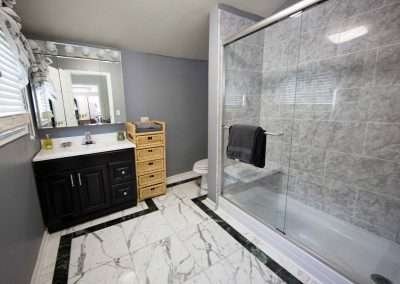Noise-Reducing Countertops for Busy Commercial Environments
In busy commercial spaces—such as open offices, cafes, and restaurants—noise can quickly become a problem. The constant hum of conversations, clinking dishes, and general foot traffic can create an environment that feels chaotic and overwhelming. While many businesses focus on soundproofing walls or ceilings, countertops can also play a surprisingly impactful role in noise reduction. By selecting noise-absorbing countertop materials, businesses can create a more pleasant atmosphere that reduces distractions, improves customer experience, and boosts productivity.
1. Why Noise Reduction Matters in Commercial Spaces
Noise pollution can be a significant issue in commercial settings, affecting both employees and customers. For example, in open office environments, excessive noise can reduce productivity and increase stress. In cafes or restaurants, a noisy atmosphere can disrupt conversation and detract from the dining experience.
- Improved Focus and Productivity: For office environments, reducing background noise can enhance employee focus and productivity, as studies show that quieter environments lead to better concentration.
- Enhanced Customer Experience: Reducing noise levels in dining establishments can make the space feel more welcoming and comfortable, encouraging customers to stay longer and improving overall satisfaction.
- Health and Wellbeing: Excessive noise has been linked to stress and fatigue. Reducing noise can improve the health and well-being of employees, leading to lower turnover and greater job satisfaction.
Why It Matters: Noise reduction is essential in creating a comfortable and functional environment for both customers and employees. Using noise-absorbing materials on countertops can help businesses achieve this goal.
2. Top Noise-Reducing Countertop Materials
Certain countertop materials have natural sound-absorbing properties that can help to minimize noise in commercial settings. Here are a few popular choices for noise-reducing countertops:
- Butcher Block: Butcher block countertops are made of wood, a material known for its sound-absorbing qualities. Wood absorbs sound waves instead of reflecting them, making butcher block an excellent option for environments where a quieter atmosphere is desired.
- Solid Surface: Solid surface materials, like Corian, are engineered to absorb sound. Unlike hard surfaces like stone or metal, solid surface countertops help reduce the intensity of sound waves, making them a good choice for areas with a lot of activity.
- Cork and Bamboo: Cork and bamboo are both softer materials with natural sound-dampening properties. Although less commonly used for countertops, they can be ideal for specific applications in coffee shops, eco-friendly restaurants, or quiet workspaces.
- Recycled Rubber or Composite Countertops: Recycled rubber or composite materials offer unique design options while providing a high level of sound absorption. These materials are ideal for cafes or industrial spaces looking to reduce noise without sacrificing style.
Why It Matters: By selecting sound-absorbing materials for commercial countertop installation in Ventura, businesses can create quieter, more pleasant environments that enhance the experience for employees and customers alike.
3. Ideal Applications for Noise-Reducing Countertops
Noise-reducing countertops are especially valuable in certain types of commercial spaces where noise levels tend to be higher. Here’s where they can make the most difference:
- Open Offices: In open-plan workspaces, where employees need to concentrate, noise-absorbing countertops in communal areas like coffee bars or lunch counters help to lower overall noise levels and improve focus.
- Cafes and Coffee Shops: Busy cafes often experience a constant flow of patrons, creating a lot of noise from conversation, coffee-making, and movement. Using butcher block or composite countertops can reduce sound in seating and service areas, enhancing the customer experience.
- Restaurants: In restaurants, especially those with open kitchens, noise-reducing countertops can help keep the dining area quieter and more comfortable for guests. Solid surface countertops in wait stations and bar areas are ideal for this purpose.
- Retail Stores and Showrooms: In busy retail settings, noise reduction can make a space feel more inviting. Sound-absorbing countertops at check-out counters or display tables help reduce the impact of bustling crowds.
Why It Matters: Installing noise-reducing countertops in high-traffic areas allows these spaces to function more effectively by reducing stress for both customers and employees.
Conclusion
Noise-reducing countertops are an often-overlooked solution for creating quieter, more pleasant commercial environments. By choosing sound-absorbing materials like butcher blocks, solid surfaces, or cork, businesses can reduce noise levels in busy spaces, enhancing both employee productivity and customer satisfaction. Proper installation further enhances these benefits, making noise-reducing countertops an investment in comfort, functionality, and aesthetics.
FAQs
1. Are noise-reducing countertops more expensive than traditional options?
The cost of noise-reducing countertops varies based on material, but many options, like butcher block and solid surface, are comparable in price to traditional choices and offer long-term durability.
2. Can noise-reducing countertops be used in all types of commercial spaces?
Yes, noise-reducing countertops can be used in various commercial settings, including cafes, offices, retail spaces, and restaurants. The best material depends on the specific needs and aesthetics of each space.
3. Do noise-reducing countertops require special maintenance?
Most noise-reducing countertops, such as butcher block and solid surface, require regular maintenance similar to other materials. Butcher block may need occasional refinishing, while solid surfaces benefit from simple wiping.
4. How much noise can a countertop actually reduce?
Countertops can absorb a portion of ambient noise, helping to lower overall noise levels. While they won’t eliminate noise, they can make a noticeable difference in high-traffic areas when combined with other sound-dampening features.
5. Are noise-reducing countertops eco-friendly?
Some noise-reducing materials, like bamboo, cork, and recycled composites, are sustainable and eco-friendly, making them ideal for businesses focused on environmental responsibility.
